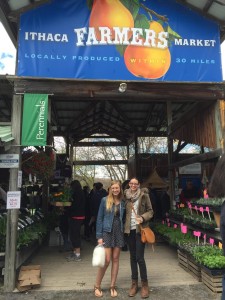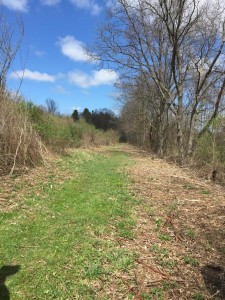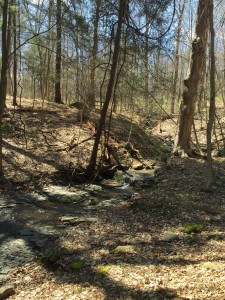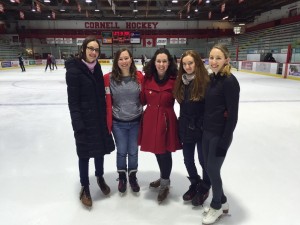For the last Rose Cafe of the year, Andy Zepp, the Director of the Finger Lakes Land Trust, came to talk about his organization that aims to buy and protect natural areas. The process of protecting land is quite different in each case. In general, Zepp and his team will approach the owner of the land and attempt to buy it or trade it. Sometimes the original owner retains some rights to the land after the transaction. In every case, the purpose isn’t to preserve the land and keep it stagnant, but rather to protect beautiful natural areas from excessive logging or degradation. Farming practices continue to evolve, and so does land use and urbanization. Zepp admits these can’t and shouldn’t be halted, but a sustainable and mutually beneficial solution for both the land owner and the natural area can be found.
It was interesting to learn about the slow and deliberate method of buying small parcels of land and putting them together over time to protect a more complete area. It was also fascinating to see how land use changed over such a short amount of time, and how this impacts the environment greatly. For instance, Zepp showed a sequence of images of the same cluster of houses and farms dating back over a hundred years. In the early photograph, the steep, hilly slope in the background was used for grazing sheep, which led to a lot of erosion. In the next, several years later, the hill was overgrown with a forest. Zepp also talked about the importance of conserving old growth forests, as these are the rarest kind in Tompkins county. As I went on a tour of the Fisher Old-Growth Forest just a few weeks ago, I could connect with what he was saying about the value of these untouched ecosystems.
I found this talk to be enjoyable and informative. I didn’t know that something like the Land Trust existed, but it makes sense to protect the abundance of beautiful natural areas in this region, as some environmental laws aren’t always enforced and some land owners might not know what is best for conserving their land.







